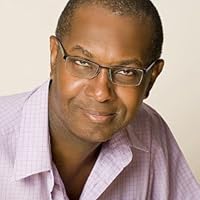Intellectual Life Quotes
Quotes tagged as "intellectual-life"
Showing 1-17 of 17
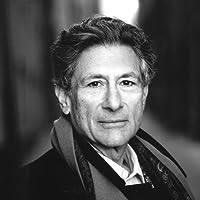
“Nothing in my view is more reprehensible than those habits of mind in the intellectual that induce avoidance, that characteristic turning away from a difficult and principled position, which you know to be the right one, but which you decide not to take. You do not want to appear too political; you are afraid of seeming controversial; you want to keep a reputation for being balanced, objective, moderate; your hope is to be asked back, to consult, to be on a board or prestigious committee, and so to remain within the responsible mainstream; someday you hope to get an honorary degree, a big prize, perhaps even an ambassadorship. For an intellectual these habits of mind are corrupting par excellence. If anything can denature, neutralize, and finally kill a passionate intellectual life it is the internalization of such habits. Personally I have encountered them in one of the toughest of all contemporary issues, Palestine, where fear of speaking out about one of the greatest injustices in modern history has hobbled, blinkered, muzzled many who know the truth and are in a position to serve it. For despite the abuse and vilification that any outspoken supporter of Palestinian rights and self-determination earns for him or herself, the truth deserves to be spoken, represented by an unafraid and compassionate intellectual.”
―
―
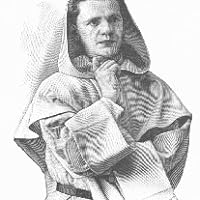
“The man who is too isolated grows timid, abstracted, a little odd: He stumbles along amid realities like a sailor who has just come off his ship; he has lost the sense of the human lot; he seems to look on you as if you were a "proposition" to be inserted in a syllogism, or an example to be put down in a notebook.”
― The Intellectual Life: Its Spirit, Conditions, Methods
― The Intellectual Life: Its Spirit, Conditions, Methods
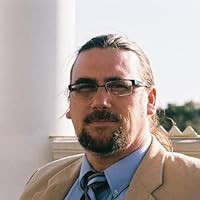
“Simply to render oneself able to understand what other Christian thinkers have themselves come to understand and to more or less felicitously communicate requires that one's mind not be a blank slate but already properly formed, disciplined, and exercised.”
―
―
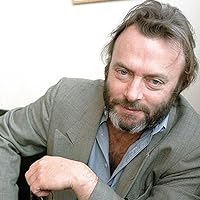
“Having confronted the world with little except a battered typewriter and a certain resilience, he can now take posthumous credit for having got the three great questions of the 20th century essentially 'right.' Orwell was an early and consistent foe of European imperialism, and foresaw the end of colonial rule. He was one of the first to volunteer to bear arms against fascism and Nazism in Spain. And, while he was soldiering in Catalonia, he saw through the biggest and most seductive lie of them all—the false promise of a radiant future offered by the intellectual underlings of Stalinism.”
―
―

“In his entire output, I can find only one piece of genuine unfairness: a thuggish attack on the poetry of WH Auden, whom he regarded as a dupe of the Communist Party. But even this was softened in some later essays. The truth is that he disliked Auden's homosexuality, and could not get over his prejudice. But much of the interest of Orwell lies in the fact that he was born prejudiced, so to speak, against Jews and the coloured peoples of the empire, and against the poor and uneducated, and against women and intellectuals—and managed, in a transparent and unique way, to educate himself out of this fog of bigotry (though he never did get over his aversion to 'pansies').”
―
―
“American culture has regressed because of contemporary society’s glorification of making a good living and spending free time in media activities rather than constantly devoting themselves to a learning and self-improvement. The combination of grooming youngsters to fit into a commercial workplace and Americans willingness to submit themselves to endless hours of watching television shows filled with murders, violence, sex, and replete with advertisements that promote the goods of commercial giants has eroded the American spirit and contributed to lack of an intellectually sophisticated populous.”
― Dead Toad Scrolls
― Dead Toad Scrolls

“The more rigid and exclusive one makes the border between philosophy and theology, the more that distinction itself has to fall on the side of theology, and the more inaccessible that very distinction becomes to philosophy”
―
―
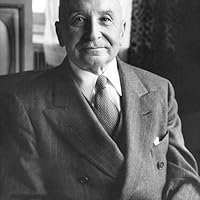
“When, thirty-five years ago, I tried to give a summary of the ideas and principles of that social philosophy that was once known under the name of liberalism, I did not indulge in the vain hope that my account would prevent the impending catastrophes to which the policies adopted by the European nations were manifestly leading. All I wanted to achieve was to offer to the small minority of thoughtful people an opportunity to learn something about the aims of classical liberalism and its achievements and thus to pave the way for a resurrection of the spirit of freedom after the coming debacle.”
― Liberalism: The Classical Tradition
― Liberalism: The Classical Tradition
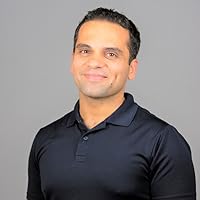
“Given the current pace of its corporatization, academia may well become the worst institution for indoctrinating and subjugating many brilliant minds that may otherwise have great potential for dissidence and creating a new worldview, which is much needed amid the global turmoil we are experiencing internationally.”
―
―

“The good is the brother of the true; it will help its brother.”
― The Intellectual Life: Its Spirit, Conditions, Methods
― The Intellectual Life: Its Spirit, Conditions, Methods

“Reading in old age for me is doing what it has always done--it frees me from the closet of my own mind.”
― Dancing Fish and Ammonites: A Memoir
― Dancing Fish and Ammonites: A Memoir

“When you’ve none of goals, how time moves so slow;
summer’s too long, can’t wait to see the snow.
When you’ve lots of goals, how time moves so fast;
hardly you noticed, summer just went past.”
―
summer’s too long, can’t wait to see the snow.
When you’ve lots of goals, how time moves so fast;
hardly you noticed, summer just went past.”
―
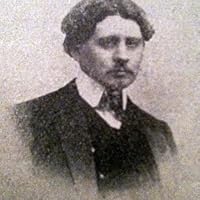
“There is, therefore, nothing external, superior or miraculous outside of us, for our intellectual life is the very life of the universe, and its expression the very highest.”
― Journey to the Land of the Fourth Dimension
― Journey to the Land of the Fourth Dimension
“There is a fundamental conflict between intellectual and political life... The essence of the intellectual life is the impulse to analyze everything indiscriminately, to understand the explanations for everything. The essence of political success is the contrary habit. Whatever one's internal understanding of the world, one must train oneself never to express those conclusions needlessly, for they may offend. Truth must be offered up by teaspoons, always with a purpose.”
― TREFETHEN'S INDEX CARDS: FORTY YEARS OF NOTES ABOUT PEOPLE, WORDS AND MATHEMATICS
― TREFETHEN'S INDEX CARDS: FORTY YEARS OF NOTES ABOUT PEOPLE, WORDS AND MATHEMATICS
“Flee those minds that can never rise above the academic rules, that are the slaves of their work instead of doing it in the fullness of light.”
―
―
“Flee those minds that can never rise above their academic rules, that are the slaves of their work instead of doing it in the fullness of light.”
―
―
All Quotes
|
My Quotes
|
Add A Quote
Browse By Tag
- Love Quotes 97.5k
- Life Quotes 76k
- Inspirational Quotes 73k
- Humor Quotes 43.5k
- Philosophy Quotes 29.5k
- Inspirational Quotes Quotes 27k
- God Quotes 26k
- Truth Quotes 23.5k
- Wisdom Quotes 23.5k
- Romance Quotes 23k
- Poetry Quotes 22k
- Death Quotes 20k
- Happiness Quotes 18.5k
- Life Lessons Quotes 18.5k
- Hope Quotes 18k
- Faith Quotes 18k
- Quotes Quotes 16.5k
- Inspiration Quotes 16.5k
- Spirituality Quotes 15k
- Religion Quotes 15k
- Motivational Quotes 15k
- Writing Quotes 15k
- Relationships Quotes 14.5k
- Life Quotes Quotes 14k
- Love Quotes Quotes 14k
- Success Quotes 13.5k
- Time Quotes 12.5k
- Motivation Quotes 12k
- Science Quotes 11.5k
- Motivational Quotes Quotes 11.5k

